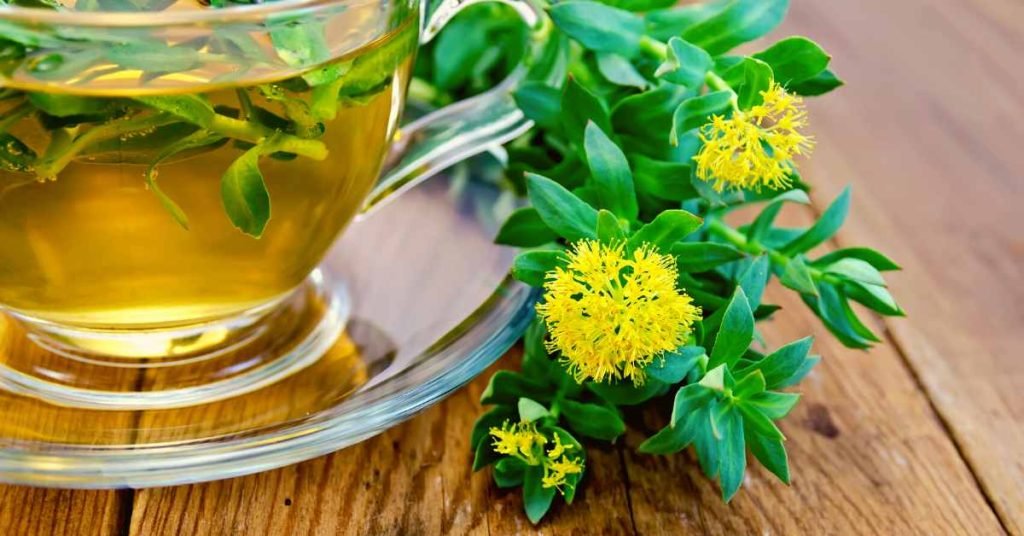Altitude sickness, also known as acute mountain sickness (AMS), can be an unwelcome companion for those ascending to high altitudes.
Symptoms such as headaches, nausea, fatigue, and dizziness can mar the experience of exploring mountainous regions.
While acclimatization and proper hydration are crucial, adding tea to your toolkit can offer a comforting and effective remedy for altitude sickness.
In this article, we’ll explore the types of teas that can aid in alleviating symptoms, delve into their benefits, and understand the mechanisms behind their efficacy.
Types of Teas for Altitude Sickness

Ginger Tea:
Benefits: Ginger has anti-nausea properties and can help relieve the queasiness often associated with altitude sickness. It aids digestion and can ease stomach discomfort.
How it Works: Ginger contains bioactive compounds, including gingerol, which can help in reducing nausea and inflammation. Its soothing effects can provide relief from headaches and digestive issues.
Peppermint Tea:
Benefits: Peppermint is known for its ability to soothe the digestive system and alleviate nausea. It also has a refreshing and cooling effect, making it an excellent choice for combating altitude-induced discomfort.
How it Works: Peppermint has menthol, which acts as a natural muscle relaxant. This can help in easing tension headaches and reducing the severity of nausea.
Chamomile Tea:
Benefits: Chamomile is renowned for its calming properties, promoting relaxation and aiding in sleep. For those experiencing altitude-related insomnia, chamomile tea can be a gentle and natural solution.
How it Works: Chamomile contains apigenin, an antioxidant that binds to certain receptors in the brain, inducing a calming effect. This can be particularly helpful when adjusting to the stress of higher altitudes.
Rhodiola Rosea Tea:

Benefits: Rhodiola rosea, an adaptogenic herb, is known to enhance the body’s ability to adapt to stressors, including the stress of high altitudes. It can help improve energy levels and reduce fatigue.
How it Works: Rhodiola rosea contains compounds like rosavins and salidroside, which have adaptogenic properties. These compounds may enhance oxygen utilization and increase the body’s resistance to stress.
Nettle Tea:
Benefits: Nettle tea is a rich source of vitamins and minerals, including iron. It can help combat fatigue and support overall well-being at high altitudes where the air is thinner.
How it Works: The iron content in nettle tea can contribute to maintaining healthy oxygen-carrying capacity in the blood, potentially reducing symptoms of fatigue and weakness associated with altitude sickness.
Mechanisms Behind Tea’s Efficacy
Hydration:
Proper hydration is crucial at high altitudes to prevent and alleviate symptoms of altitude sickness. Tea, whether consumed hot or cold, contributes to fluid intake. Hydration helps in thinning the blood, making it easier for the body to transport oxygen.
Anti-Inflammatory Properties:

Many teas, such as ginger and chamomile, contain anti-inflammatory compounds. Inflammation can exacerbate symptoms of altitude sickness, and these teas work to mitigate this response, providing relief from headaches and bodily discomfort.
Relaxation and Stress Reduction:
Altitude sickness can induce stress on the body. Teas like chamomile and peppermint have calming effects, helping to alleviate stress and promote relaxation. This can contribute to better acclimatization and an overall improved sense of well-being.
Adaptogenic Properties:
Herbs like rhodiola rosea possess adaptogenic properties, aiding the body in adapting to stressors such as changes in altitude. This adaptability can improve energy levels, reduce fatigue, and enhance the body’s resilience.
Final Word
Tea, with its diverse range of flavors and therapeutic properties, can be a valuable addition to your arsenal against altitude sickness.
Whether you’re sipping on ginger tea to calm your stomach, enjoying a cup of peppermint tea to ease headaches, or indulging in chamomile tea for relaxation, the benefits extend beyond the delightful taste.
The hydration, anti-inflammatory effects, and adaptogenic properties of various teas can collectively contribute to a more comfortable and enjoyable experience at high altitudes.

As always, it’s essential to listen to your body, stay well-hydrated, and consult with a healthcare professional if symptoms persist or worsen.
\So, the next time you find yourself ascending to new heights, consider bringing along your favorite tea for both the pleasure of sipping and the potential relief it may offer against altitude sickness.
MEDICAL DISCLAIMER
Itsnevernotteatime.com cannot and does not contain medical/health advice. The medical/health information is provided for general and educational purposes only and is not a substitute for professional advice.




